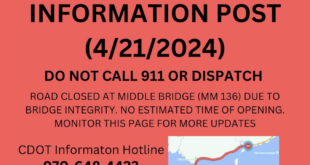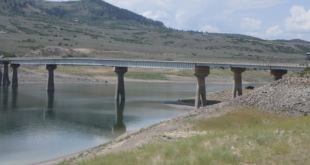Suit alleges that housing fee would have to be voter approved
Gunnison County will have to defend a fee it levies on builders to pay for local affordable housing programs in district court. The Gunnison County Contractor’s Association filed suit Thursday, June 12, seeking an end to the fee, claiming it is a tax requiring voter approval and is therefore currently illegal under state law.
According to association president Joe Puchek, “There are three reasons for the suit.” First, he says, there is no connection between the fee and the problem of an affordable housing shortage. Next, he says the fee is in fact a tax under state law and as such needs to be approved by voters before it can be assessed.
And finally, Puchek says, “although there is a need for affordable housing and we recognize that, there are more fair and economical ways to meet the need.”
Through a resolution adopted in June 2006, the county requires developers to pay a fee toward essential housing needs in the county based on the type of construction planned—residential or commercial/industrial—and the size of the planned construction.
The first resolution to address the issue required a payment for residential development of between $586 and $17,252 for development in the county and $1,971 to $58,022 in the Crested Butte area. Commercial and industrial development had a fee of $912 per 1,000 square feet of development in the county and $3,067 per 1,000 square feet around Crested Butte.
In the spring of this year the County Commissioners amended that resolution to even out the fee for development throughout the county, to range from $710.50 to $37,637 for residential development and $1,990 per 1,000 square feet for commercial or industrial spaces.
The fee also applies to all additions or remodels to existing residences of more than 500 square feet and all residential, commercial and industrial construction, according to the resolution.
All fees are deposited into the Gunnison County Housing Trust Fund and distributed as essential housing projects require.
“We’d like to see the fee repealed and have the county work on different means to achieve the need for essential housing,” says Puchek.
The association has 56 members, representing businesses associated with the building industry, like lumber suppliers, insurance companies and banks, as well as Habitat for Humanity and many contractors.
“You’d be surprised at the number of people who see their income derived from the construction industry, and it’s not limited to contractors,” he says.
Also listed as plaintiffs in the suit with the association are Jamie Watt Construction Inc., Alpine Construction, Nicholas Mirolli, Sara Mirolli and others affected by the required fee in Gunnison County, according to documents filed with the court.
The plaintiffs are asking the court to: declare that the linkage fee is an improper or invalid fee; declare that the fee violates the state constitution; award a refund to all individuals and businesses who have been assessed the housing fee plus 10 percent; and award plaintiffs their reasonable attorney’s fees and costs incurred in bringing the suit.
In response to the suit, the Board of County Commissioners, listed as a defendant in the filing with the Gunnison County Housing Authority, issued a statement at its regular meeting Tuesday, June 17 saying, “We believe that we have responded appropriately to our greater community’s housing needs through an impact fee. Impact fees are commonly and widely used throughout Colorado and the nation. If the court finds that our impact fee is appropriate, it is our intent to continue our program. If the court points out a flaw with our fee then we will fix it and move forward to respond to our community’s workforce housing needs, which are critical to our economic development.”
Attorneys Allen Hale and Amanda Bradley of Denver-based law firm Hale Friesen LLP represent the plaintiffs.
In court filings, they make the argument that the county cannot show that the housing fee will reduce the strain placed on the community by any particular development. Another concern is that the construction industry is bearing a disproportionate amount of the burden in dealing with the housing situation.
“We’re not denying that there is a need—we’re just not understanding why the cost is being passed on to the contractors,” says Puchek. “They’re putting the onus on construction to pay for essential housing and [the connection between development and the lack of affordable housing] can’t be shown. It doesn’t correlate.”
But the county contends that the fee does meet the requirements of the law and is confident that it will hold up in court, says county attorney David Baumgarten. The county has 30 days to respond to the suit.
In the early stages of the Housing Fee planning process, the Contractor’s Association had a hand in structuring the fee. But the resolution has seen several alterations since the recommendations were made to the commissioners.
“It had just gotten to the point where we don’t feel like we are being heard as a group [anymore], so we took these measures,” says Puchek.
 The Crested Butte News Serving the Gunnison Valley since 1999
The Crested Butte News Serving the Gunnison Valley since 1999





